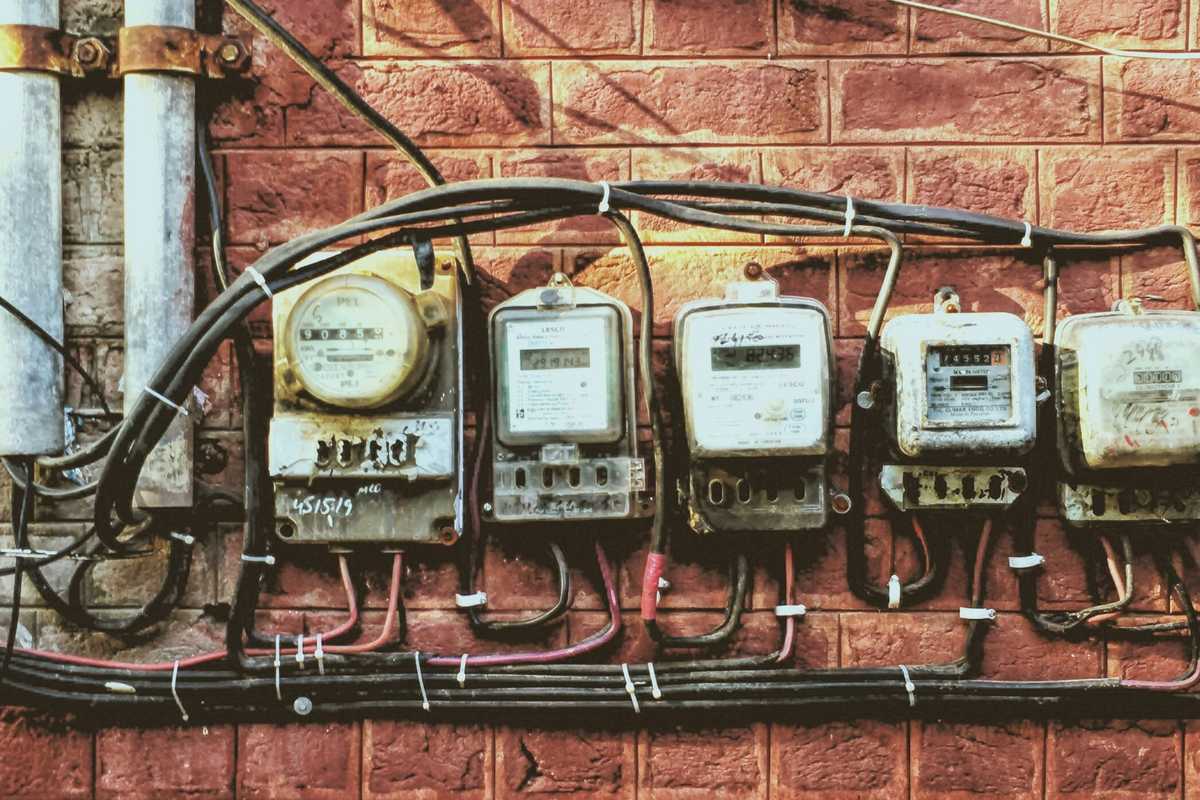After all the noise around IPP deals, how much cheaper will electricity get?
NEPRA has approved the design and regulations for the Competitive Trading Bilateral Contract Market, which will be launched at an 'appropriate time'

Haris Zamir
Business Editor
Experience of almost 33 years where started the journey of financial journalism from Business Recorder in 1992. From 2006 onwards attached with Television Media worked at Sun Tv, Dawn Tv, Geo Tv and Dunya Tv. During the period also worked as a stringer for Bloomberg for seven years and Dow Jones for five years. Also wrote articles for several highly acclaimed periodicals like the Newsline, Pakistan Gulf Economist and Money Matters (The News publications)

Five electric meters on a wall
Making a mountain out of a molehill is perhaps the best way to describe the entire saga of the Pakistan government's negotiations or renegotiations with Independent Power Producers (IPPs). It started with claims of big reductions in electricity bills but after talks with 30 IPPs, the actual difference is coming to less than PKR 3 per unit compared to the current cost.
It all started last year when the electricity tariff reached a new peak, with bills becoming higher than the rent for some Pakistanis. Amid rising public anger, the government shifted the blame onto the IPPs and assured the masses that it was negotiating with them to reduce the tariff.
Subsequently, in October, the government announced it was terminating agreements with five IPPs.
Since then, the government has terminated its agreement with one more IPP and the federal cabinet has approved new draft agreements with 24 others — consisting of 16 under the 1994 and 2002 power policies as well as eight bagasse-based IPPs, according to officials in the Ministry of Energy, who spoke to Nukta on the condition of anonymity.
This is expected to save the government PKR 1,214 billion.
Why the govt is going after IPPs
The five plants with whom the government initially terminated agreements mainly operate on furnace oil, which is the costliest source of electricity generation. Given the government's move away from expensive generation sources, the contribution of these plants to the grid lately had been almost none.
That was the rationale behind the government's efforts to terminate their contracts — the plants contributed zero electricity to the grid but still received payments. This is because the original agreements signed with these plants made it mandatory for the government to pay them for the entire installed capacity and not just the electricity generated and bought. These are called capacity charges and are at the crux of the tug-of-war between the government and the IPPs.
However, it is important to note that the payments received by IPPs are in accordance with their legal and implementation agreements; previous governments had agreed to both dollar-based returns and capacity charges when these plants were being set up because the country urgently needed more electricity to meet rising demand and it could only happen through foreign investment.
Lots of noise, very little change
Government officials have been very vocal about the billions of rupees that will be saved due to these terminations and renegotiations, some of which were done with unwilling IPPs.
But how much will the consumer benefit? A mere PKR 3 per unit, according to the officials.
A wholesale electricity market
Meanwhile, the government is working on another initiative to improve the electricity system: a wholesale market.
The National Electric Power Regulatory Authority (NEPRA) has approved the design and regulations for the Competitive Trading Bilateral Contract Market (CTBCM), and a test run has been conducted, they told Nukta.
The market will be launched at an appropriate time, the officials added.
Moreover, the Ministry of Energy as well as a government task force are coordinating with the regulator for a mechanism under which bilateral contracts will be auctioned to industries at a fair wheeling price.
The mechanism would utilize the buyer's or distribution network to wheel energy from the generator to an industrial unit.







Comments
See what people are discussing